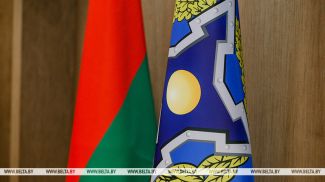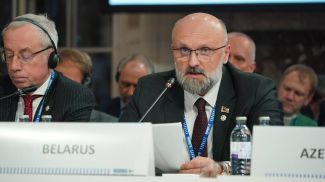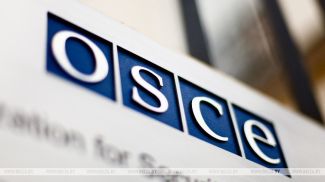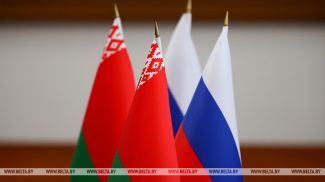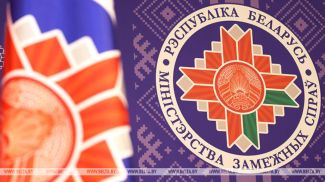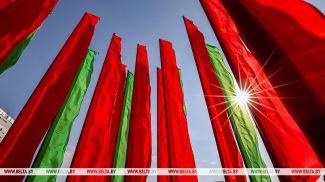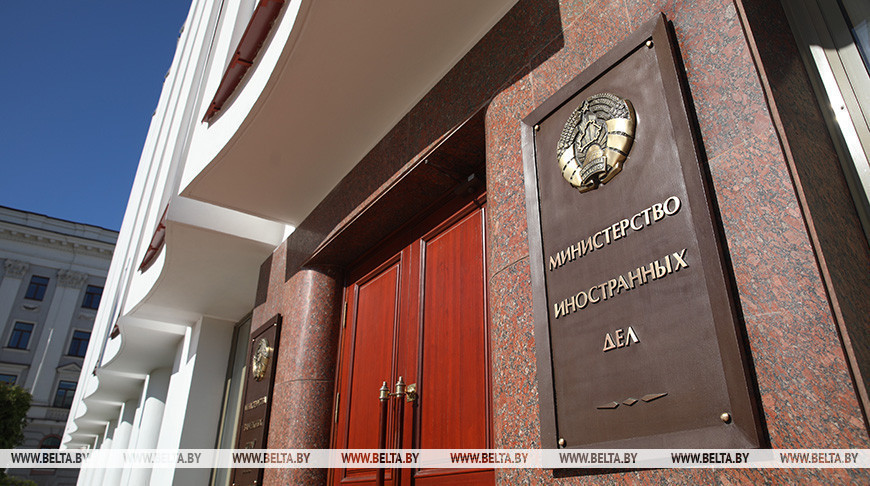
MINSK, 11 November (BelTA) - None of the heads of the Belarusian diplomatic missions abroad will be left behind after the planned staff transition in the ministry, Belarusian Minister of Foreign Affairs Maksim Ryzhenkov said in an interview to Belarus 1 TV channel, BelTA has learned.
“I'd like to tell all the ill-wishers who say that the ministry is in for some kind of purges. Not a single employee will be left out of personnel decisions. We have proposals for everyone within the Ministry of Foreign Affairs system or the country’s authorities. In general, we consider working abroad in such high positions as a good stepping stone for gaining experience, connections, contacts, interesting ideas in order to apply all this later when working in Belarus later,” Maksim Ryzhenkov said.
On 4 November, Belarusian President Aleksandr Lukashenko heard a report on the personnel policy in the Ministry of Foreign Affairs. The head of state suggested discussing the personnel policy in the Ministry of Foreign Affairs system in order to coordinate the work in connection with the arrival of the new minister.
"I am sure that there will be certain adjustments, reshuffles in the ministry itself. Therefore, it is very important to make up our minds in this regard. I want to say right away that, like no other ministry, the MFA should have the most careful attitude to personnel," Aleksandr Lukashenko said. “In general, this is how it should be in the country. But the ministry is a special body. Personnel are very important. So is the careful attitude to it."
Following the report to the head of state, Maksim Ryzhenkov told the media that big staff reshuffles were planned among Belarusian diplomats abroad. “We are planning a fairly large staffing day in connection with appointments in the diplomatic corps abroad,” the minister explained. “It is not because of some emergency situation, or someone would say it is because of the upcoming election. No. It is needed because some time ago this moment was missed, and today we have to prepare a significant number of specialists for appointment.”
According to Maksim Ryzhenkov, many countries stick to the rotation principle in diplomatic practice. First of all, in order to prevent diplomats from being influenced by the host country.
“I'd like to tell all the ill-wishers who say that the ministry is in for some kind of purges. Not a single employee will be left out of personnel decisions. We have proposals for everyone within the Ministry of Foreign Affairs system or the country’s authorities. In general, we consider working abroad in such high positions as a good stepping stone for gaining experience, connections, contacts, interesting ideas in order to apply all this later when working in Belarus later,” Maksim Ryzhenkov said.
On 4 November, Belarusian President Aleksandr Lukashenko heard a report on the personnel policy in the Ministry of Foreign Affairs. The head of state suggested discussing the personnel policy in the Ministry of Foreign Affairs system in order to coordinate the work in connection with the arrival of the new minister.
"I am sure that there will be certain adjustments, reshuffles in the ministry itself. Therefore, it is very important to make up our minds in this regard. I want to say right away that, like no other ministry, the MFA should have the most careful attitude to personnel," Aleksandr Lukashenko said. “In general, this is how it should be in the country. But the ministry is a special body. Personnel are very important. So is the careful attitude to it."
Following the report to the head of state, Maksim Ryzhenkov told the media that big staff reshuffles were planned among Belarusian diplomats abroad. “We are planning a fairly large staffing day in connection with appointments in the diplomatic corps abroad,” the minister explained. “It is not because of some emergency situation, or someone would say it is because of the upcoming election. No. It is needed because some time ago this moment was missed, and today we have to prepare a significant number of specialists for appointment.”
According to Maksim Ryzhenkov, many countries stick to the rotation principle in diplomatic practice. First of all, in order to prevent diplomats from being influenced by the host country.




